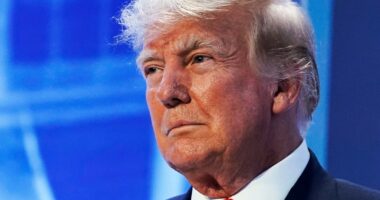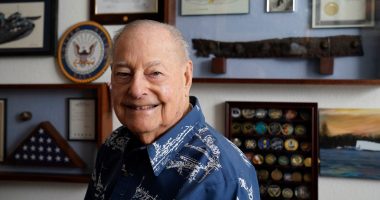
FORT WORTH, Texas—A Texas jury found a former Boeing Co. pilot not guilty of deceiving his counterpart at the Federal Aviation Administration about a 737 MAX flight-control system later blamed for two fatal crashes.
The jury found Mark Forkner not guilty on all four counts of wire fraud in what prosecutors described as a scheme to enrich Boeing by defrauding American Airlines Group Inc. and Southwest Airlines Co. of tens of millions of dollars. Each count carried a maximum penalty of 20 years in prison.
Mr. Forkner was accused of misleading the FAA about the flight-control system known as MCAS to reduce how much training pilots would need to fly it, thus making the jet more attractive to airlines.
Mr. Forkner had pleaded not guilty, saying federal prosecutors have targeted him as a scapegoat. Defense attorneys noted Mr. Forkner wasn’t an engineer and that many others were involved in the flight-control system’s design and certification.
The trial started Friday in a federal courthouse in Fort Worth, Texas, and was shorter than expected. Mr. Forkner’s attorneys called a single witness—a current Boeing pilot, who testified on Wednesday before closing arguments.
Mr. Forkner was the company’s chief technical pilot for the 737 MAX during the airplane’s development. In his role he was responsible for training materials and pilot manuals for the aircraft. He left Boeing in 2018.
Prosecutors closed their case by describing what they said was Mr. Forkner’s scheme to enrich Boeing and himself by defrauding American Airlines and Southwest Airlines of tens of millions of dollars.
Federal prosecutor Mike O’Neill accused Mr. Forkner of tricking Stacey Klein, his FAA counterpart, into approving lighter training requirements to avoid costing Boeing tens of millions of dollars.
Mr. O’Neill said Mr. Forkner learned that MCAS had been expanded to include low-speed flying conditions—not just high-speed conditions airline pilots wouldn’t likely ever encounter—but failed to tell Ms. Klein and then sought to cover up his deception.
“It’s lies for money, plain and simple,” Mr. O’Neill said.
Boeing initially designed the 737 MAX’s MCAS system to activate during certain high-speed flying conditions that pilots would rarely encounter. But during the aircraft’s development, company engineers expanded the system’s authority to push down the plane’s nose in certain low-speed conditions, too.
Accident investigators blamed MCAS for sending two 737 MAX jets into fatal nosedives in 2018 and 2019. The crashes claimed 346 lives and prompted a nearly two-year grounding of all 737 MAX planes, disrupting the global aviation industry.
Defense attorneys said Mr. Forkner never learned that MCAS’s authority had been expanded to lower speeds, arguing he had been kept in the dark by Boeing engineers and test pilots responsible for designing the automated cockpit feature and building the aircraft.
In his closing argument, defense attorney Jeff Kearney sought to discredit Ms. Klein and another key government witness, senior Boeing engineer David Loffing. Mr. Loffing was a senior Boeing engineer assigned to the 737 MAX development before later becoming the chief engineer for the company’s newest plane, the 777X.
Mr. Kearney said Mr. Forkner never lied to Ms. Klein, whose job was to approve pilot training for the new plane—and possibly expensive simulator training that Mr. Forkner, Boeing and the airlines wanted to avoid.
Noting Ms. Klein had testified she wanted accurate information, Mr. Kearney said Mr. Forkner “gave it to her—when he knew it.”
“Make no mistake: Mark Forkner did not lie to Stacey Klein,” Mr. Kearney said.
Defense attorneys repeatedly pointed out that the government produced no record of a phone call in which Mr. Loffing claimed he told Mr. Forkner that MCAS had in fact been expanded.
Mr. Loffing testified Tuesday that Mr. Forkner called him after a 2016 simulator experience in which prosecutors claim Mr. Forkner learned the system had been expanded and told a colleague in a chat message: “So I basically lied to the regulators (unknowingly).” Mr. Forkner’s attorneys have argued the former Boeing pilot was complaining about a malfunctioning simulator, not the MCAS.
In a settlement with the Justice Department, Boeing last year agreed to pay $2.5 billion to resolve charges that its employees misled the FAA. The deal included a $244 million fine as well as almost $2.3 billion in compensation to airline customers and families of the crash victims.
Boeing admitted in its settlement with the Justice Department that former employees deceived the FAA. The deal blamed two employees, although only Mr. Forkner was charged, and said senior management wasn’t involved in the misconduct.
Write to Andrew Tangel at [email protected]
Copyright ©2022 Dow Jones & Company, Inc. All Rights Reserved. 87990cbe856818d5eddac44c7b1cdeb8








